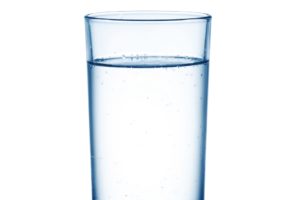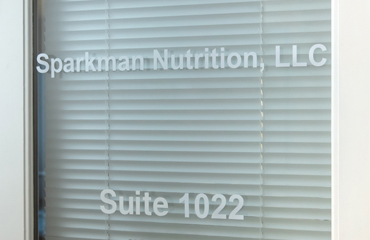Fact or fiction? Investigate the scientific evidence behind popular nutritional claims
Is drinking eight glasses of water per day enough?
The research behind this general recommendation is scant; while it may be a good recommendation for some people to get them thinking about drinking water in place of sugary drinks, it leaves out the notion you can obtain fluid through fruits and vegetables. A good indication of hydration is the color of your urine. Generally, you are hydrated if your urine is pale yellow to clear in color (the exception is first thing in the morning, when your urine is more concentrated after sleeping all night). Be aware that certain vitamins, such as B vitamins, will give your urine a glow-in-the-dark yellow color, and some medications may also change the color. Remember: Activity and weather can also affect your hydration status.
Will everything I eat after 7 p.m. turn to fat?
Your body doesn’t have a clock that hits 7 p.m. and tells your cells to store everything currently in digestion as fat. Even though this is a myth, I understand the original intent. People who snack after dinner or late at night tend to snack mindlessly and out of habit. Mindless eating can easily lead to overeating, which can lead to weight gain. So, if, in theory, you instill a dietary rule such as “don’t eat after 7 p.m.,” you force yourself to eat less and, therefore, consume fewer calories overall. While I wouldn’t want to encourage mindless eating or habitual snacking, I wouldn’t want someone to ignore true physical hunger signals just because it’s past a certain hour. If you didn’t get enough to eat during the day, are up late working, or exercised later in the evening, you may very well need an after-dinner snack. If you have one, don’t fret; it won’t automatically turn into fat.
Eat three meals a day or five mini-meals a day to keep metabolism going.
This theory has come and gone and seems to be sticking around these days. What surprises me is that, when people insist on eating five mini-meals per day to keep their metabolism going, they are usually not increasing their muscle mass through physical activity—which has been proven to increase metabolism. Try both schedules, consider your hunger cues, and see what works best for you. Do your energy levels stay more consistent with five mini-meals on most days? It may be that your job or school schedule works better with the standard three-meals-a-day pattern. Either way, if you are looking to boost your metabolism, stick to the tried-and-true way of physical activity.
Do I burn more calories if I drink cold water instead of room temperature water?
If you are hoping to increase your metabolism significantly in order to lose weight by drinking cold water, you are out of luck. Andrea Tappe, a dietitian at the University of Arkansas for Medical Sciences, noted that the body expends about eight calories to raise your to body temperature to 98.6 degrees after drinking cold water. The Mayo Clinic tells us that one pound is equal to 3,500 calories.
Is caffeine dehydrating?
If you drink caffeine regularly, your body has likely adjusted to the diuretic effect of caffeine and, as long as you are consuming enough fluids to replace those lost through daily activities and exercise, you will probably not experience dehydration. Dr. Ann Grandjean, EdD, FACSM, CNS, said, “The body develops a tolerance to caffeine after about 3–5 days of regular use—which greatly diminishes the weak diuretic effect of caffeine.” She went on to state, “Even though caffeine is a weak diuretic, drinking caffeinated beverages is not detrimental to the hydration status of those who regularly consume them.” (I am thrilled with this news, as it completely justifies my espresso habit.)
Eating eggs will give you high cholesterol.
Cholesterol is essential to the body, and it produces cholesterol on a daily basis. Some people produce more than others, and foods high in saturated and trans fat can have a big impact on “bad” LDL cholesterol. The American Heart Association recommends no more than 300mg of cholesterol per day, and a grade A large egg has an average of 185mg of cholesterol. Eggs are sometimes served with high-saturated foods, such as bacon and lots of cheese; the saturated fat in those foods may contribute to high LDL cholesterol. Try including spinach, red peppers, and black beans with an egg in your next breakfast taco.



